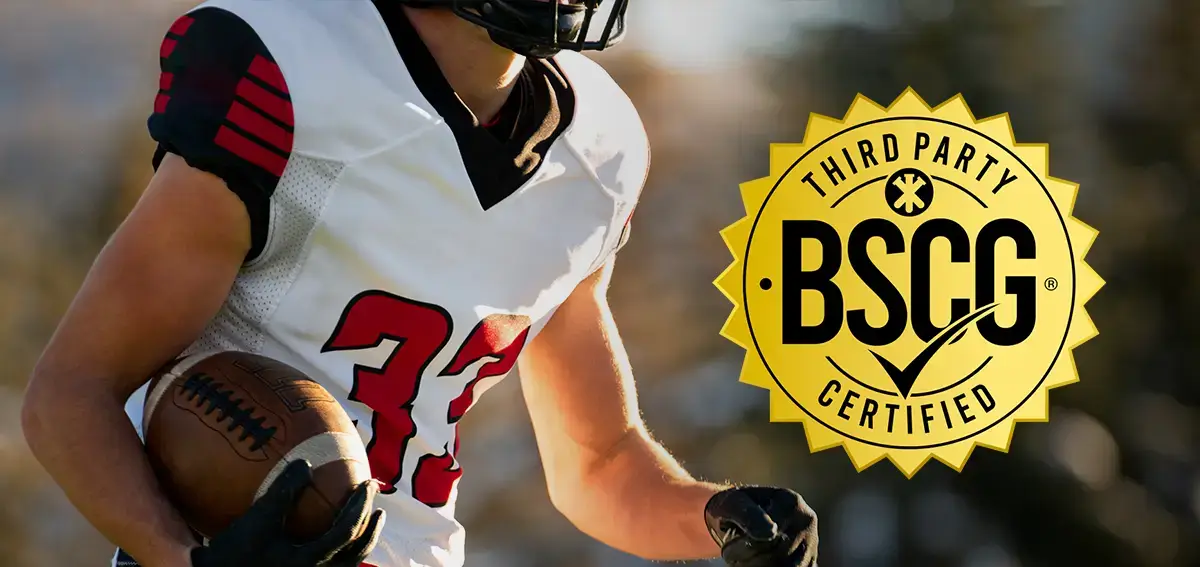
THE GOLD STANDARD IN THIRD-PARTY CERTIFICATION AND TESTING : +1-800-920-6605, info@bscg.org
Decisions about what substances to test for and how closely to examine them are key to learning if a dietary supplement contains compounds that could be dangerous or lead to a positive drug test. No supplement certification company in the world makes these decisions with greater care or insight than BSCG.
BSCG’s unique experience in pioneering and administering anti-doping tests at the highest levels of sport provides us with a solid scientific foundation from which to evaluate a dietary supplement product and make the sometimes difficult call involved in certifying it.
At BSCG, clinical laboratory science always comes first.
The list of dangerous and banned substances is a constantly evolving one, as competitors seek to use substances not being tested for and unscrupulous manufacturers move to cash in or prop up their products with less expensive yet often more dangerous compounds or new designer drugs. These problematic substances, which may include anabolic steroids, stimulants, SARMs, beta 2 agonists, peptide hormones, diuretics/masking agents, muscle relaxers, painkillers and more usually are not listed on the ingredients list.
For substances banned in sport BSCG casts the largest but also most thoughtfully directed net in the industry by targeting its testing to those substances on the World Anti-Doping Agency’s (WADA’s) Prohibited List, particularly those that have been responsible for positive drug tests in WADA labs over the last decade. With WADA labs testing for all professional and Olympic athletes, the compounds they find are of highest relevance to athletes consuming supplements. BSCG’s screening covers more than 274 substances banned in sport that collectively are responsible for more than 96% of positive drug tests in the last ten years, with compounds regularly added to keep up with new designer drugs that appear in the marketplace. By testing for compounds that are both the most current and the most problematic, BSCG can detect the substances that are real threats to responsible competitors.
For consumer protection, BSCG has a menu of more than 211 prescription and over-the-counter drugs that are not banned in sport. We are pleased to be the first supplement certification provider to offer protection of this kind. Many of these compounds have been found in adulterated supplements by the FDA and could have serious deleterious health effects if unknowingly present in a product. We screen for these drugs at levels aimed to prevent adverse effects or pharmacological activity.
We also offer protection to equines and canines. Our clinical laboratory science including drug-testing protection to racing animals. Our equine and canine screen adds additional drugs to our standard menu that are banned by the Federation Equine International (FEI) and the Thoroughbred Owners and Breeders Association (TOBA). BSCG offers testing for animal supplements as well as compounded medications.
Athletes and consumers might think that any laboratory can analyze a dietary supplement for the presence of drugs or contaminants. The truth is that detection of such compounds is a highly intricate science that should be carried out only by an organization experienced in testing for banned substances using methods that have been validated to perform in complex supplement matrices. This is why it’s so important to utilize clinical laboratory science.
BSCG is headed by the Catlins, father-son partners who have unrivaled experience in running such labs, including the UCLA Olympic Analytical Laboratory, the first of its kind in the United States and then the largest performance-enhancing testing facility in the world. BSCG’s clinical laboratory science testing uses technology developed and derived for testing banned substances in human athletes. Methods have been carefully re-engineered by BSCG to detect these same substances in dietary supplement matrices.
BSCG works with a network of top quality laboratory partners recognized as leaders in their fields. All laboratories are ISO 17025-accredited and/or FDA and DEA registered and use methods that have been designed and validated to perform in dietary supplements. Testing uses the most up-to-date and sophisticated instruments and equipment available, including LC-MS/MS, LC-MS, GC-MS/MS, GC-MS, ICP-MS, HPLC, microscopy and more.
One of the most important aspects of a quality supplement certification program is the sensitivity of its analysis method, otherwise known as the detection limit. A method’s detection limit is the smallest concentration of a substance that the method will be able to reveal. When even trace amounts of banned substances can cause an athlete to test positive or a consumer to experience serious health consequences, it is vital to establish detection limits at the parts per billion level (ng/g).
BSCG’s detection methodology has some of the lowest limits in the industry with 10-100 ng/g performance for the majority of compounds and the remaining compounds in the 100-500 ng/g range. Athletes and consumers can rest assured that a product carrying the BSCG Certified Drug Free® seal has been tested with a method sensitive enough to reveal even the smallest concentrations of potentially dangerous and banned substances.

 YouTube Channel
YouTube Channel
Oliver Catlin Interview
 BSCG BLOG
BSCG BLOG
Tainted Supplements Still Causing NFL Doping Violations

 The Catlin Perspective blog widget
The Catlin Perspective blog widget
THE HISTORY OF BSCG